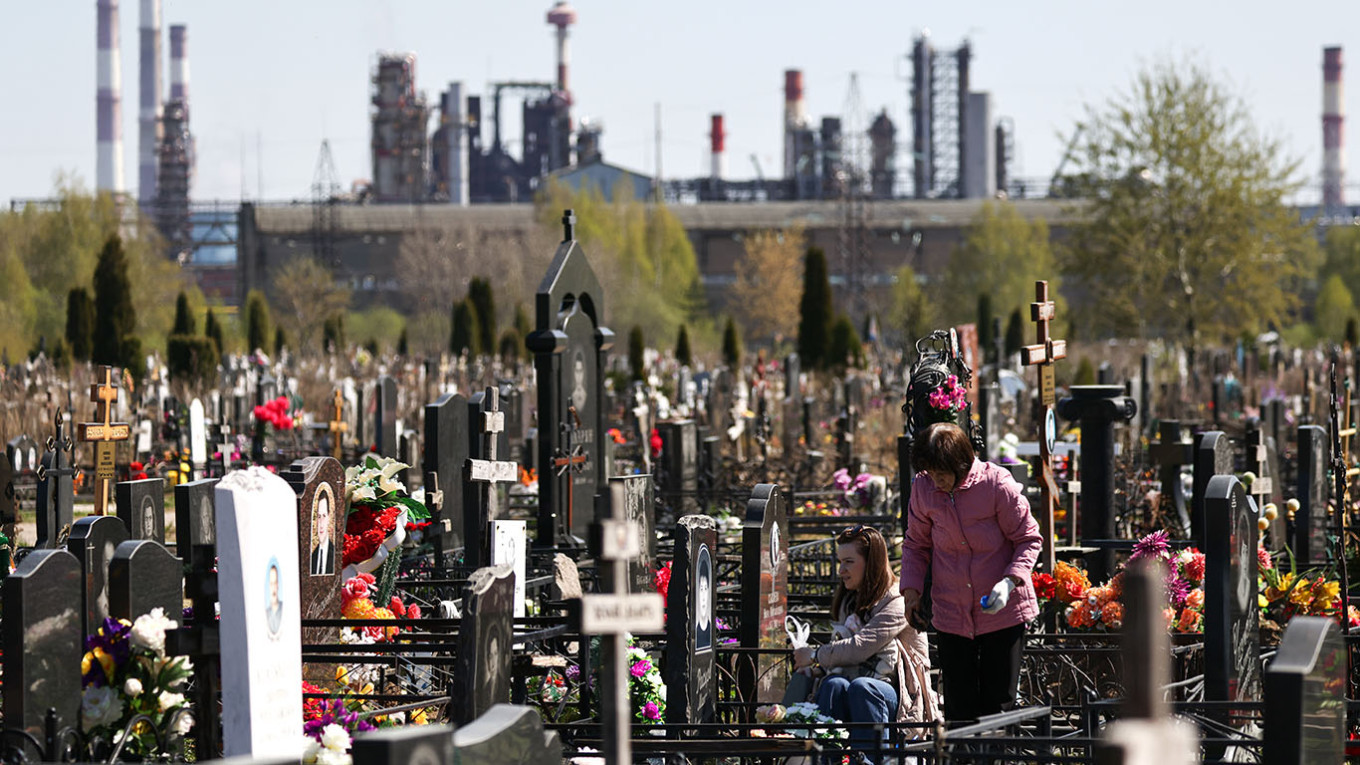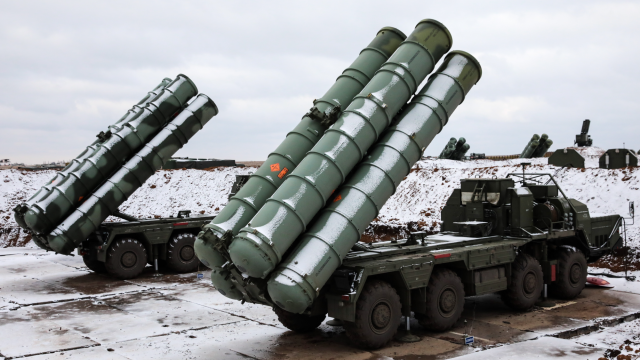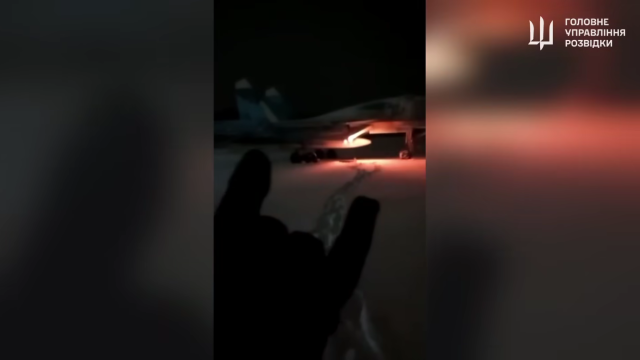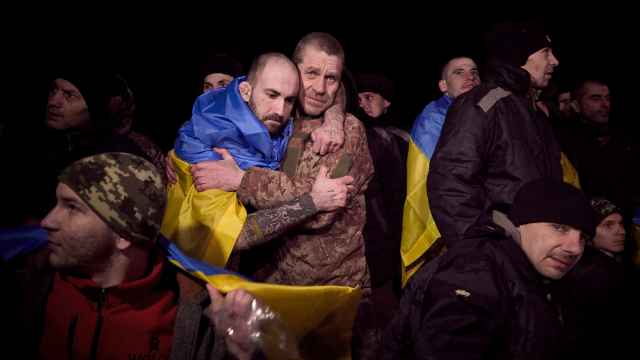Читайте русскую версию здесь.
Russian regions’ spending on cemetery expansion projects was nearly three times higher during the first two years of the full-scale invasion of Ukraine than it was during the two years prior, The Moscow Times has found.
According to data from the official state procurement portal, Russia’s regions spent more than 225 million rubles ($2.5 million) on cemetery expansion in 2023.
This is twice as much as in 2022 and almost six times more than in 2020, before the height of the coronavirus pandemic.
Authorities have already spent 136 million rubles ($1.5 million) for this purpose during the first half of 2024. This is compared to 38 million rubles ($432,000) spent by the regions to expand cemeteries in 2020, over 124 million rubles in 2021 ($1.4 million) and 122 million rubles ($1.3 million) in 2022.
In the two pre-pandemic years, 2018 and 2019, the regions spent a combined 1.1 billion rubles ($12.5 million) on cemetery expansion. However, during this period, Moscow conducted a large-scale cemetery renovation program, minus the spending of the capital region, Russia spent about 125 million ($1.4 million) cumulatively for two years.
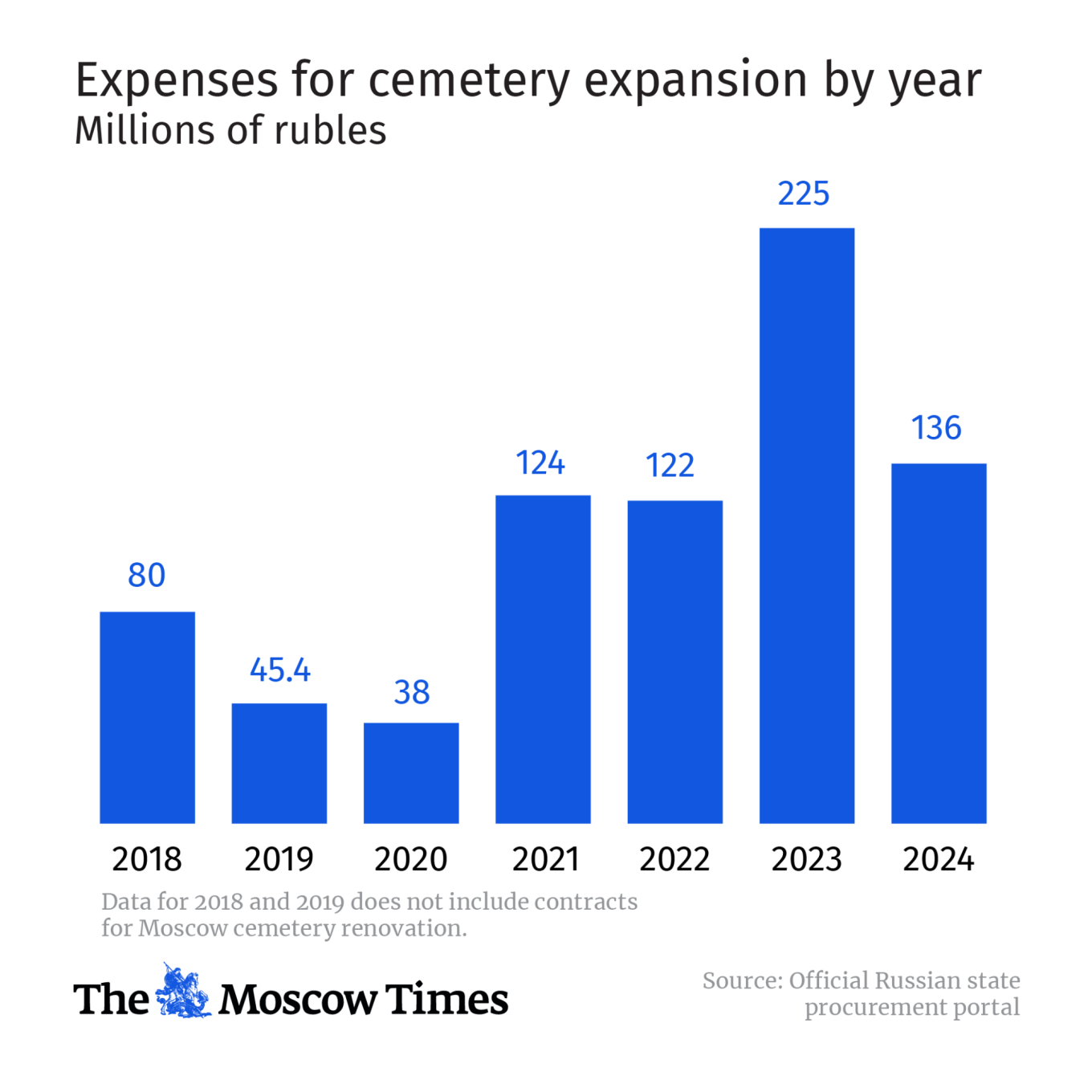
Official statistics have not shown a surge in deaths resulting from the war in Ukraine. According to state statistics agency Rosstat, the number of deaths decreased year-on-year by 22% in 2022 and by another 7.6% in 2023.
Meanwhile, the independent news website Meduza analyzed the federal register of inheritance cases and estimated that about 120,000 people may have died in the war. Journalists from the BBC Russian service and Mediazona have managed to confirm the identities of more than 58,000 Russian soldiers killed in Ukraine.
According to Rosstat, mortality in Russia increased by 18% in 2020 compared to 2019. Mortality rose by another 15.1% in 2021, reaching World War II-era levels.
Russia confirmed more than 680,000 deaths caused by Covid-19 during the first two years of the pandemic. A group of scientists led by the chief scientist of the Austria-based International Institute for Systems Analysis estimated that the real toll of the pandemic in Russia exceeds 1 million people.
But even during the pandemic, half as much was spent on expanding cemeteries as during the two years of the war.
The war in Ukraine is just one of the factors that explain the expansion of cemeteries over the last two years, says demographer Yan Bride.
Natural causes, such as an aging population and alcohol-related deaths, are also driving this process, he said.
But “the Covid effect has passed” and “the intensification of deaths at younger ages has also led to a growing demand for funeral services to create new territories,” Bride said.
The winner in terms of spending on cemetery expansion over the years is the Khanty-Mansi autonomous district, which at more than 262 million rubles ranks second among Russia’s regions with the highest economic potential after Moscow itself.
The other top regions spent much less: the Ulyanovsk region — more than 37 million rubles, the Sverdlovsk region — more than 31 million rubles, the Irkutsk region — 15.7 million rubles, the Yamal-Nenets autonomous district — 15.3 million rubles.
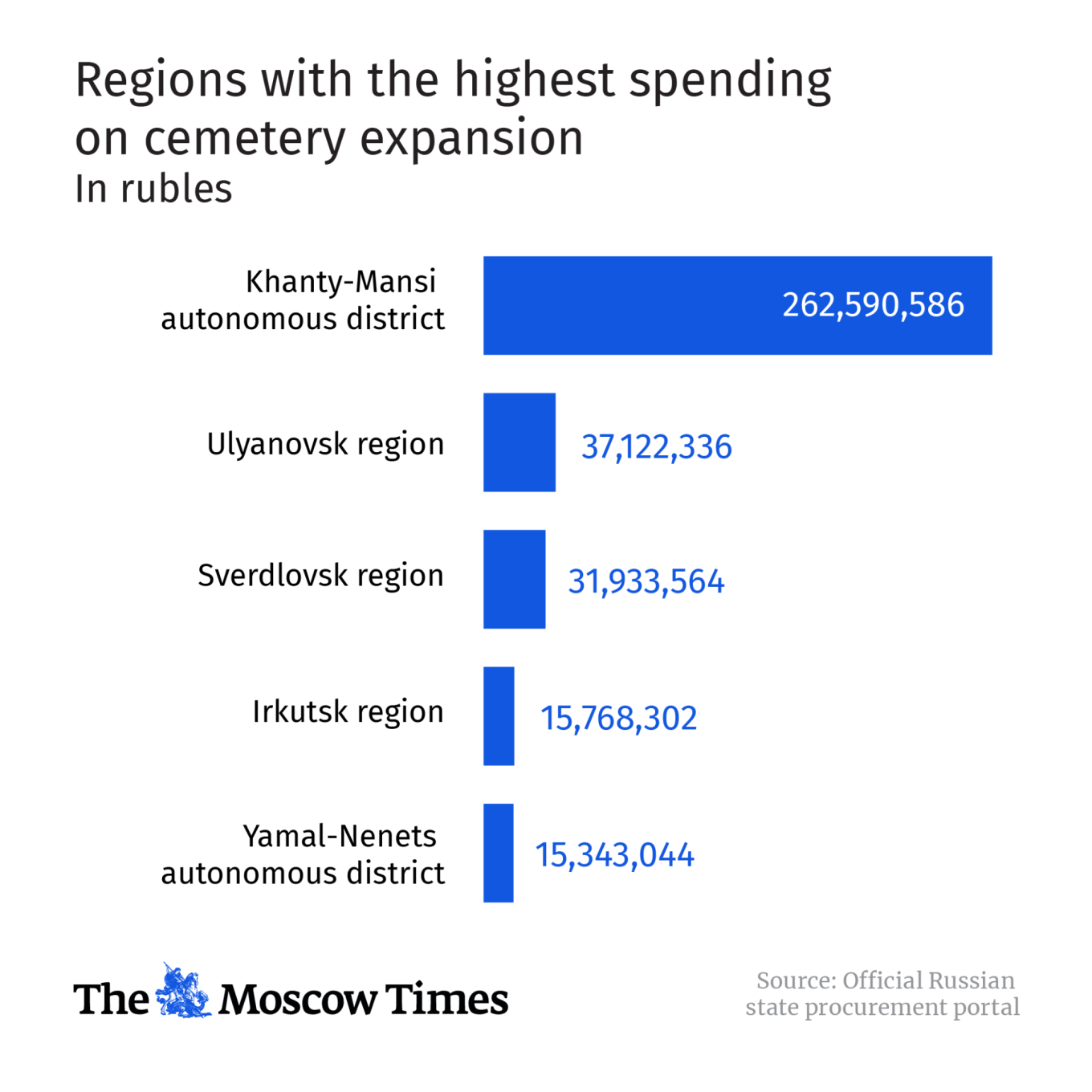
In the Khanty-Mansi autonomous district, cemeteries are being expanded in the settlements of Nizhnevartovsk, Kogalym, Langepas, Priobie and Talinka, according to government procurement data. Mortality in the region is falling: the number of deaths in 2023 decreased by about 4%, according to state statistics agency Rosstat.
More than 233 million rubles ($2.6 million) were spent over 2.5 years to expand the cemetery in Nizhnevartovsk, which according to government procurement data was carried out in four stages.
The exact area of the cemetery is not specified in the procurement documents, but it is known that more than three hectares of forest will be cut down for its expansion — roughly the size of four soccer fields.
The Moscow Times calculated that the Tyumen region, which includes the Khanty-Mansi Autonomous Okrug and Yamalo-Nenets Autonomous Okrug, was one of the leaders in spending on funeral supplies for military burials in 2022-2023.
The Ulyanovsk region spent 37 million rubles to expand the Tiinsky cemetery in the city of Dmitrovgrad, even though the region’s mortality rate fell by 8% in 2023.
In the Sverdlovsk region, cemeteries were expanded in the settlement of Verkh-Neyvinsky, the village of Nizhnyaya Oslyanka, in the cities of Polevskoy and Kamensk-Uralsky. In the latter, the expansion affected the Volkovskoye cemetery, where two blocks were allocated for people who died while taking part in the war in Ukraine. At the same time, the region’s official death rate last year fell by 6%.
The least spent on cemeteries were the Lipetsk region (170,000 rubles), the republic of Udmurtia (273,000 rubles), the Zabaikalsky region (356,000 rubles), the Perm region (542,000 rubles) and the republic of Buryatia (602,000 rubles).
According to BBC Russian’s calculations, Buryatia is among the leaders in terms of losses in the war in Ukraine, with about 1,500 soldiers and officers having been buried there.
About 40% of all cemeteries being expanded are located in urban settlements and villages, while 60% are in small towns. Only three cemeteries belong to large cities or regional capitals (Moscow, St. Petersburg and Murmansk).
“For a small rural cemetery, 10-20 coffins that come from Ukraine is a lot, so they will certainly be expanded there due to the war, among other things. Plus, if some regions decide to bury fighters in rural cemeteries instead of within the city limits, this is another argument in favor of expansion,” said Sergei Krivenko, director of the Grazhdanin. Armiya. Pravo (“Citizen. Army. Rights.”) human rights group.
A Message from The Moscow Times:
Dear readers,
We are facing unprecedented challenges. Russia's Prosecutor General's Office has designated The Moscow Times as an "undesirable" organization, criminalizing our work and putting our staff at risk of prosecution. This follows our earlier unjust labeling as a "foreign agent."
These actions are direct attempts to silence independent journalism in Russia. The authorities claim our work "discredits the decisions of the Russian leadership." We see things differently: we strive to provide accurate, unbiased reporting on Russia.
We, the journalists of The Moscow Times, refuse to be silenced. But to continue our work, we need your help.
Your support, no matter how small, makes a world of difference. If you can, please support us monthly starting from just $2. It's quick to set up, and every contribution makes a significant impact.
By supporting The Moscow Times, you're defending open, independent journalism in the face of repression. Thank you for standing with us.
Remind me later.


